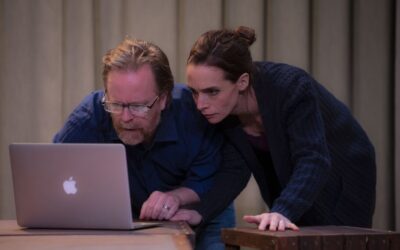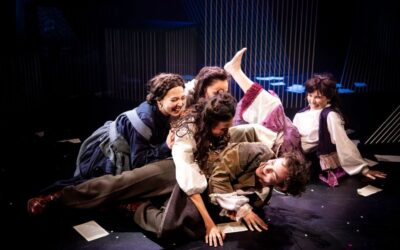By Darby Turnbull
There’s a moment in every maturing reader’s experience when they realize how dense and disturbing JM Barrie’s Peter Pan and Wendy actually is. Alongside the fairies, pirates, mermaids and flying with the aid of some fairy dust and happy thoughts are the terrors of growing up, abandonment, encroaching sensuality and deep wells of loneliness when the adventures pause. The lost boys are stuck in perpetual childhood without any memory of their former lives but a consistent need for maternal attention, stories, love, comfort. Wendy, of the original tale, then her daughter Jane and a long line of girls get enlisted to become a child mother but they inevitably choose to return to the real world to accept grown up responsibilities and age.
Eva and Ruby Rees’ Flit really leans into how pervasively fucked the story is leaving this reviewer with a delicious feeling of second hand emotional grime.
Having followed Ruby Rees work the last few years I’ve been endlessly impressed by her affinity for her ability to delve into the dreads and warped perspectives of young people. Her and her sister, Eva (currently appearing in Malthouse’s Hour of the Wolf) have crafted a dark, unnervingly resonant dissection of the original tale that exists in direct conversation with Barrie’s themes and adapts them into something fresh and exciting. When the final lights dimmed I was so rapt I couldn’t quite accept it was over, like the best bedtime stories I was hungry for more and though it reached its natural conclusion I wasn’t satiated.
Flit (Madeline Magee- Carr) is a lost boy, one of the many foundlings that Peter took to Neverland when the parents or nanny’s weren’t looking, on an ambiguous quest to bring back another mother or learn how to become one. Or is it exile?
Madeline Magee-Carr, a worthy successor to the tradition of grown women playing young boys, is unsettlingly adept at immersing herself into a figure of childhood. At first her affectation is cloying but her performance grows in dimension as the plays’ jagged edges begin enveloping the characters; she begins to merge from a puckish sprite to brainwashed cult follower. The text keenly explores Peter Pan’s more toxic characteristics through the effect he’s had on those in his orbit. In the text he’s capricious, sadistic, manipulative as well as being charismatic. Many adaptations omit these aspects and it’s refreshing to actually explore just how much damage a vain, zealous perpetual child can inflict.
With her wide eyes and tremulous high pitched voice Maggee-Carr is uniquely placed to place the audience in a very uncomfortable place.
Matching her with a very different, but complimentary energy is Kaiya Jones as ‘The Girl’ far from placing her in a cozy nursery; she’s a young, contemporary woman sleeping rough. Though she attempts to present as tough she’s been weighed down by abuse, drug use, violence and poverty. The set provides a stark evocation of the barrenness and self neglect that is her life, filthy sheets, broken furniture; a hodgepodge of found and hastily put together furniture; the milk crates are a great touch.
Jones is brilliant at peeling back the layers to reveal the depths of her characters’ need, neglect and trauma. She possesses the grim wit of a survivor and fatalistic dead pan wisdom of someone marking time to obliteration.
This is a very special piece that deserves to be seen on the international stage.





